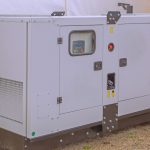
In recent years, the frequency of power outages has increased in many areas, leaving homeowners and businesses looking for reliable solutions to keep their essentials running during blackouts. Backup generators have become a crucial tool for maintaining continuity and safety during these times.
A backup generator ensures that when the power goes out, essential appliances like refrigerators, heating and cooling systems, and lights continue to function. This is especially important for preserving food, maintaining comfortable temperatures, and keeping critical systems operational. For many, the choice between a gas-powered generator and alternatives like solar or battery backups is a significant decision.
Types of Backup Generators
There are several types of backup generators to consider. Traditional gas-powered generators are common due to their reliability and power. These generators are capable of running vital circuits and can be a lifesaver during extended outages. Dual fuel generators, which run on either gasoline or propane, offer flexibility and longer runtime options. However, propane usage needs careful management, especially during long outages where refueling can be a challenge.
Solar and Battery Backups
Solar and battery backups are growing in popularity as they provide a cleaner energy alternative. However, they come with their own set of challenges. The initial cost for installation can be high, and their efficiency heavily depends on the weather and climate. Solar panels are great for reducing electricity bills and can provide power during outages, but they may not be sufficient for prolonged periods without sunlight. Battery storage systems also degrade over time and may require significant investment to replace or upgrade.
Installation and Setup
Proper installation is key to the effective use of a backup generator. Whether you’re using a gas generator or a dual fuel system, having an electrician set up a subpanel and exterior connection is crucial. This setup allows for easy switching to generator power and ensures that only critical circuits are powered, avoiding unnecessary load and fuel consumption. The cost of installation varies, but it is a necessary investment to ensure safe and efficient operation.
Maintenance and Usage Tips
Regular maintenance of generators is essential to ensure they are ready to use when needed. Gasoline generators, for instance, require fuel stabilizers to keep the gas from decaying. It’s also important to run the generator periodically to ensure it remains in good working condition. For those with propane generators, managing fuel consumption by running the generator for limited hours can stretch the fuel supply and reduce costs.
Considerations for Rural Areas
In rural areas, where power outages can last longer, having a reliable backup generator is even more critical. Propane generators are often preferred in these regions due to the availability of large propane tanks and the difficulty in refueling gasoline. Solar and battery systems can be beneficial but may require additional investment in battery capacity and maintenance to be truly effective during extended outages.
Backup generators play a vital role in ensuring safety and comfort during power outages. Whether you opt for a gas, propane, or solar-powered system, the key is to choose one that meets your specific needs and is installed and maintained correctly. By considering the type of generator, installation requirements, and maintenance tips, you can ensure that your home or business remains powered and protected during unexpected outages. Investing in a backup generator is a smart move for anyone looking to safeguard their daily life against the increasing frequency of power disruptions.





